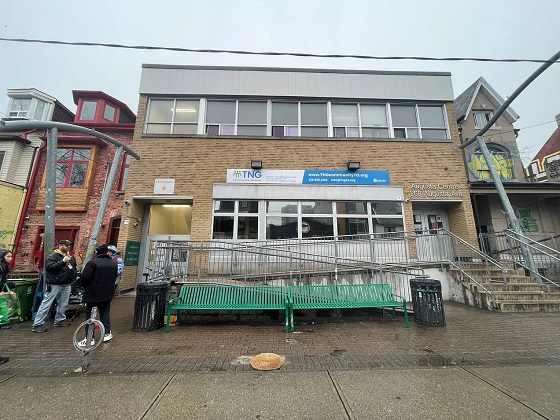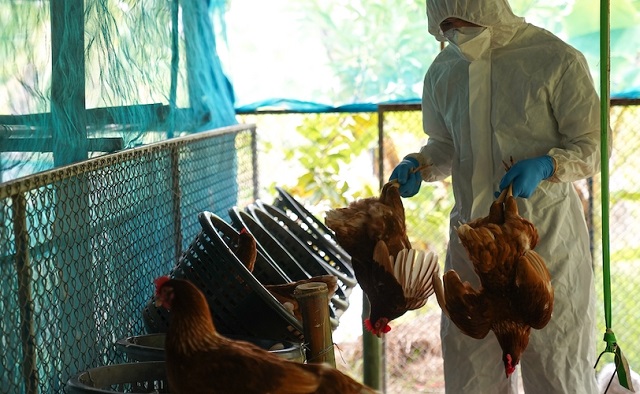Health
LGBT group challenges Alberta pro-family bill, wants puberty blockers for 10-year-olds

From LifeSiteNews
A federally funded pro-LGBT group is challenging Alberta’s pro-family legislation that bans giving often sterilizing puberty blockers to kids, claiming sex “reassignment” procedures are necessary for children.
On December 9, Egale Canada, an LGBT activist group, filed an injunction against Alberta’s newly passed Health Statutes Amendment Act (HSAA), also called Bill 26, at the Calgary’s Court of King’s Bench
“If you deny a kid access to blockers and then they go through permanent changes via puberty, they then have to pursue medical treatment and interventions to undo the effects of [puberty], so that is how the coercion is operating,” Bennett Jensen, legal director at Egale Canada, told CBC News.
Alberta’s new legislation, passed last week, reflects “the government’s commitment to build a health care system that responds to the changing needs of Albertans,” it said.
The bill will amend the Health Act to “prohibit regulated health professionals from performing sex reassignment surgeries on minors.”
It will also ban the “use of puberty blockers and hormone therapies for the treatment of gender dysphoria or gender incongruence” to kids 15 and under “except for those who have already commenced treatment and would allow for minors aged 16 and 17 to choose to commence puberty blockers and hormone therapies for gender reassignment and affirmation purposes with parental, physician and psychologist approval.”
Egale Canada, which receives funding from Prime Minister Justin Trudeau’s federal government, has paired with Skipping Stone and five Alberta families to challenge the new law. The group is using five gender-confused children to argue their case.
They claim that the new legislation violates both the national Charter of Rights and Freedoms and the provincial Alberta Bill of Rights.
The court filing effectively argues that if the Alberta bill is upheld, the gender-confused children, some as young as ten, will not be able to halt naturally occurring puberty through artificial means, which presents an impediment to their ability to “transition.”
While some are objecting to the common-sense legislation, the Alberta bill has found the support of an alliance for detransitioners who regret their “gender transition” process.
Despite the claims of LGBT activists, there is overwhelming evidence showing that people who undergo so-called “gender transitioning” are more likely to commit suicide than those who are not given irreversible surgery.
Transgender surgeries and drugs have been linked to permanent physical and psychological damage, including cardiovascular diseases, loss of bone density, cancer, strokes and blood clots, and infertility.
Meanwhile, a recent study on the side effects of transgender “sex change” surgeries discovered that 81 percent of those who had undergone “sex change” surgeries in the past five years reported experiencing pain simply from normal movement in the weeks and months that followed – and that many other side effects manifest as well.
Health
Ivermectin & Fenbendazole Cancer Secrets Revealed

Remarkable success stories are pouring in from people using Ivermectin and Fenbendazole to combat cancer.
Mel Gibson dropped a bombshell on Joe Rogan’s podcast, revealing that three of his friends had “stage four cancer,” and now “all three of them don’t have cancer right now at all.”
“And they had some serious stuff going on,” Gibson emphasized.
Dr. William Makis, who treated one of Gibson’s friends, has been rigorously researching the anti-cancer potential of Ivermectin and Fenbendazole over the past two years. During that time, he discovered, “There are over 100 papers on the success of Ivermectin and cancer.”
“Ivermectin can actually kill cancer stem cells,” Dr. Makis explained, noting that it targets the cells “that chemo can’t kill.” He added, “It can also reverse resistance that cancer cells develop to certain types of chemotherapy.”
The benefits extend further. “It [Ivermectin] makes cancer cells susceptible to radiation treatment as well. And so it’s a radiosensitizer,” he shared.
Yet, research into these applications has been neglected. “Big Pharma has completely abandoned it. Ivermectin is off-patent. No one’s going to make money on it,” Dr. Makis pointed out.
Taking action where others haven’t, Dr. Makis applied his findings to his practice. “I have over 1,000 cancer patients who are on either a combination of Ivermectin and Fenbendazole or Ivermectin and Mebendazole,” he shared.
Some of his patients were “given a terminal diagnosis” but are now “cancer-free” or have their “cancer under control.”
“Patients, for example, who are taking combinations of chemo and Ivermectin or radiation and Ivermectin are seeing dramatic results that oncologists have never seen, that radiation oncologists have never seen,” Dr. Makis shared.
“Tumors shrinking down to almost nothing, liver metastases disappearing, brain metastases disappearing.”
“There are hundreds, if not thousands, of testimonials” documenting the success stories of Ivermectin and Fenbendazole, Dr. Makis added, offering hope to patients seeking alternatives.
He strongly believes that “the future of cancer care is in repurposed drugs.”
For more information on the use of Ivermectin and Fenbendazole for cancer,
follow Dr. William Makis MD on Substack.
Addictions
New lawsuit challenges Ontario’s decision to prohibit safe consumption services

Kensington Market Overdose Prevention Site in Toronto, Dec. 18, 2024. [Photo credit: Alexandra Keeler]
Critics says Ontario’s plan to replace supervised consumption sites with HART Hubs will exacerbate harms to drug addicts and strain the health-care system
The operator of a Toronto overdose prevention site is challenging Ontario’s decision to prohibit 10 supervised consumption sites from offering their services.
In December, Neighbourhood Group Community Services and two individuals launched a constitutional challenge to Ontario legislation that imposes 200-metre buffer zones between supervised consumption sites and schools and daycares. The Neighbourhood Group will be forced to close its site in Toronto’s Kensington Market as a result.
In its court challenge, the organization is arguing site closures discriminate against individuals with “substance use disabilities” and increase drug users’ risk of death and disease.
The challenge is the latest sign of growing opposition to Ontario’s decision to either shutter supervised consumption sites or transition them into Homelessness and Addiction Recovery Treatment (HART) Hubs. The hubs will offer drug users a range of primary care and housing solutions, but not supervised consumption, needle exchanges or the “safe supply” of prescription drugs.
Critics say the decision to suspend supervised consumption services will harm drug users and the health-care system.
“We’re very happy that the HART Hubs are being funded,” said Bill Sinclair, CEO of Neighbourhood Group Community Services. “They’re a great asset to the community.”
“[But] we want HART Hubs and we want supervised consumption sites.”
Our content is always free.
Subscribe to get BTN’s latest news and analysis, or donate to our journalism fund.
‘Come under fire’
On Thursday, the Ontario government announced that nine of the 10 supervised consumption sites located near centres with children would transition into HART Hubs. The Neighbourhood Group’s site is the only one not offered the opportunity to transition, because it is not provincially funded.
Laila Bellony, a harm reduction manager at a supervised consumption site at the Parkdale Queen West Community Health Centre in Toronto, says she is worried that drug users may avoid using HART Hubs altogether if they do not facilitate the use of drugs under the supervision of trained staff.
Data show this oversight can prevent deaths by facilitating immediate intervention in the event of an overdose.
Bellony is also concerned the site closures will increase the strain on other health-care services. She predicts longer wait times and bed shortages in hospital emergency rooms, as well as increased paramedic response times.
“I think the next thing that will happen is the medical or health-care system is going to come under fire for being sub-par. But it’s really all starting here from this decision,” she said.
She questions how the HART Hubs will meet demand for detox and recovery services or housing solutions.
Parkdale Queen West Community Health Centre and its sister site, the Queen West Site, serve hundreds of clients, Bellony says. By contrast, Ontario’s HART Hub rollout plan indicates all 19 hubs will together provide 375 new housing units across the province.
“The HART Hub model is not a horrible model,” said Bellony. “It’s the way that it’s being implemented that’s ill-informed.”
In a response to requests for comment, a media spokesperson for the Ontario Ministry of Health directed Canadian Affairs to its August news release. That release lists proposals for increased safety measures at remaining sites, and a link to a HART Hub “client journey.”
On Dec. 3, the Auditor General of Ontario, Shelley Spence, released a report criticizing the health ministry’s “outdated” opioid strategy, noting it has not been updated since 2016.
National data show a 6.7 per cent drop in opioid deaths in early 2024. But experts caution it is too soon to call it a lasting trend. Opioid toxicity deaths in 2023 were up 205 per cent from 2016.
“We concluded that the Ministry does not have effective processes in place to meet the challenging and changing nature of the opioid crisis in Ontario,” the auditor general’s report says.
“The Ministry did not … provide a thorough, evidence-based business case analysis for the 2024 new model … [HART Hubs] to ensure that they are responsive to the needs of Ontarians.”
 |
Parkdale Queen West Community Health Centre’s Queen West Site in Toronto, Dec. 18, 2024. [Photo credit: Alexandra Keeler]
‘Ill-informed’
Ontario has cited crime and public safety concerns as reasons for blocking supervised consumption sites near centres with children from offering their services.
“In Toronto, reports of assault in 2023 are 113 per cent higher and robbery is 97 per cent higher in neighbourhoods near these sites compared to the rest of the city,” Ontario Health Minister Sylvia Jones’ office said in an Aug. 20 press release.
The province has also cited concerns about prescription drugs dispensed through safer supply programs being diverted to the black market.
Police chiefs and sergeants in the Ontario cities of London and Ottawa have confirmed safer supply diversion is occurring in their municipalities.
“We are seeing significant increases in the availability of the diverted Dilaudid eight-milligram tablets, which are often prescribed as part of the safe supply initiatives,” London Police Chief Thai Truong said at a Nov. 26 parliamentary committee meeting examining the effect of the opioid epidemic and strategies to address it.
But Bellony disputes the claim that neighbourhoods with supervised consumption sites experience higher crime rates.
“Some of the things that [the ministry is] saying in terms of crime being up in neighborhoods with safe consumption sites — that’s not necessarily true,” she said.
In response to requests for information about the city’s crime rates, Nadine Ramadan, a senior communications advisor for the Toronto Police Service, directed Canadian Affairs to the service’s crime rate portal.
The portal shows assaults, break-and-enters and robberies in the West Queen West neighborhood have remained relatively stable since the Queen West supervised consumption site opened in 2018.
In contrast, crime rates are higher in some nearby neighbourhoods without supervised consumption sites, such as The Junction.
“While I can’t speak to perceptions about a rise in crime specifically around supervised consumption sites, I can tell you that violent crime is increasing across the GTA,” Ramadan told Canadian Affairs. She referred questions about Jones’ statements about crime data to the health minister’s office.
Jones’ office did not respond to multiple follow-up inquiries.
Mixed feelings
In July, Canadian Affairs reported that business owners in the West Queen West neighbourhood were grappling with a surge in drug-related crime.
Rob Sysak, executive director of the West Queen West Business Improvement Association, says there are mixed feelings about their neighbourhood’s site ceasing to offer safe consumption services.
“I’m not saying [the closure] is a positive or negative decision, because we won’t know until after a while,” said Sysak, whose association works to promote business in the area.
Sysak says he has heard concerns from business owners that needles previously used by individuals at the site may now end up on the street.
Bellony supports the concept of HART Hubs offering addiction and support services. But she says she finds the province’s plan for the hubs to be unclear and unrealistic.
“It seems very much like they kind of skipped forward to the ideal situation at the end,” she said. “But all the steps that it takes to get there … are unaddressed.”
This article was produced through the Breaking Needles Fellowship Program, which provided a grant to Canadian Affairs, a digital media outlet, to fund journalism exploring addiction and crime in Canada. Articles produced through the Fellowship are co-published by Break The Needle and Canadian Affairs.
Our content is always free – but if you want to help us commission more high-quality journalism, consider getting a voluntary paid subscription.
-

 Addictions24 hours ago
Addictions24 hours agoNew lawsuit challenges Ontario’s decision to prohibit safe consumption services
-

 Brownstone Institute2 days ago
Brownstone Institute2 days agoThe Trump Administration Must Bring Moderna to Heel
-

 Daily Caller1 day ago
Daily Caller1 day agoTrump Calls Biden’s Drilling Ban ‘Worst Abuse Of Power I’ve Ever Seen’
-

 Alberta1 day ago
Alberta1 day agoProvince to double Alberta’s oil production
-

 C2C Journal2 days ago
C2C Journal2 days agoNatural Gas – Not Nuclear – Is the Key to Powering North America’s Future
-

 Business1 day ago
Business1 day agoTrump Needs To Take Away What Politicians Love Most — Pork
-

 COVID-191 day ago
COVID-191 day agoMel Gibson tells Joe Rogan about alternative cancer treatments, dangers of Remdesivir
-

 Dan McTeague23 hours ago
Dan McTeague23 hours agoMark Carney would be bad for Canada






